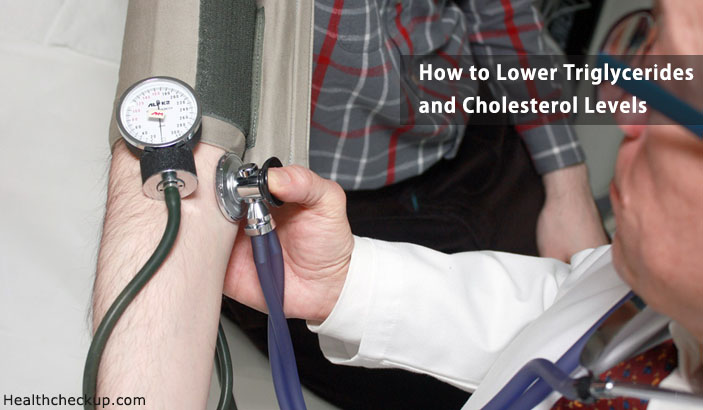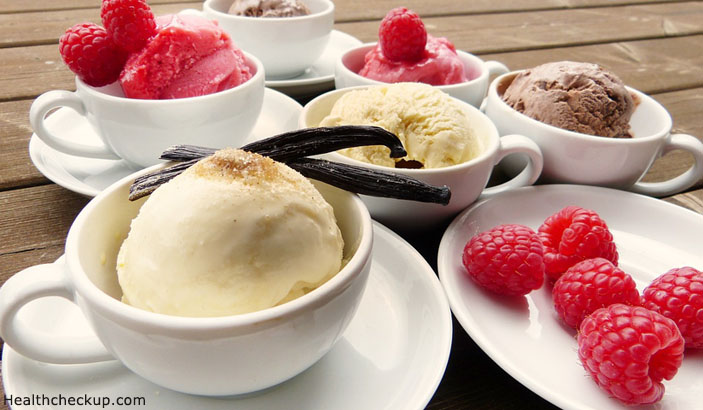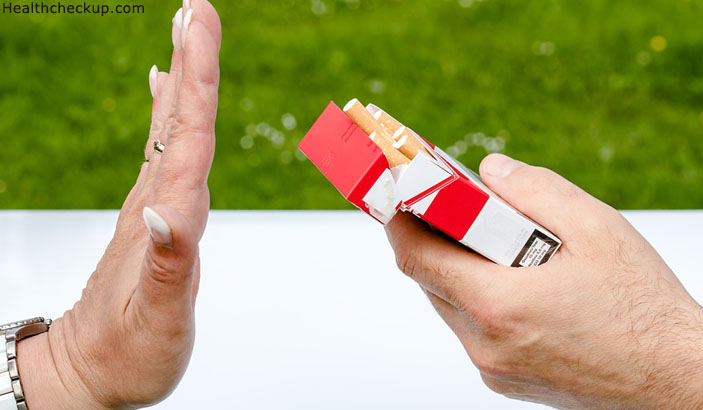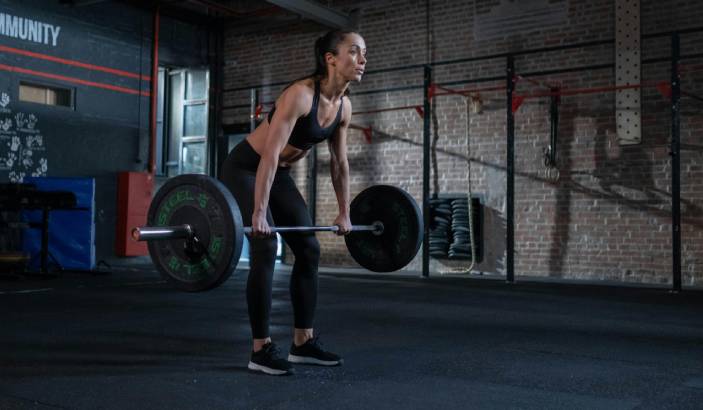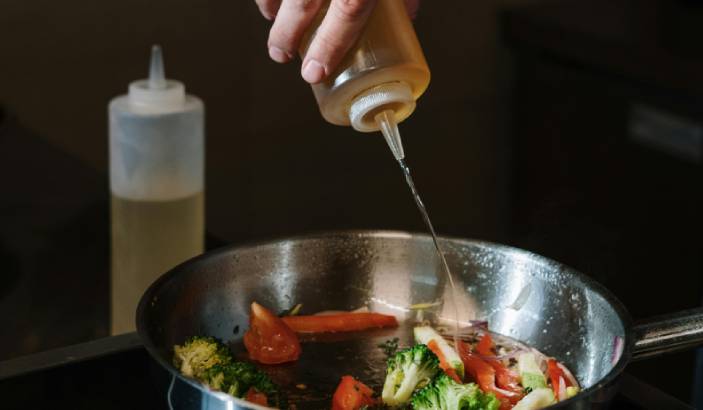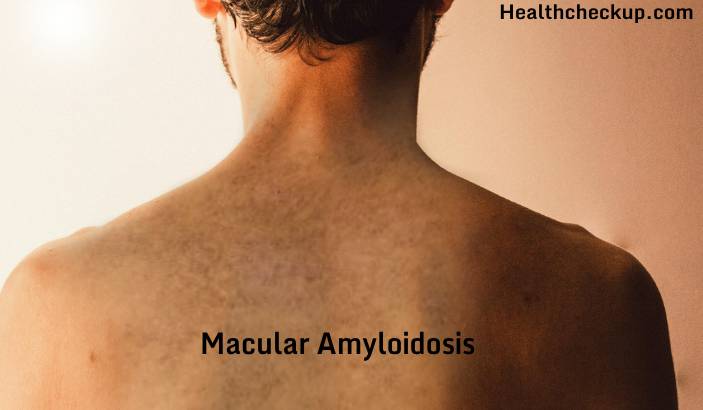Heart disease becomes very common when it comes to aging. But getting one in young age is a thing no one wants to happen. Still, there are diseases that cause this and there are ways to prevent them. One of these diseases is a lipid disorder, the one that happens when you have high blood levels of Low Density Lipoprotein (LDL) cholesterol or fats that are called Triglycerides, or both. Let’s see how to deal with it and how to lower triglycerides and cholesterol levels.
What are Cholesterol and Triglycerides
Cholesterol is a substance that found in blood naturally. It’s essential for a good health and helps to maintain it. But when its level becomes too high, cholesterol becomes a problem.
Cholesterol moves through veins in a lipoprotein, and there are two types of it: the good and the bad. The good cholesterol actually helps to remove another cholesterol (the ‘bad’ one) from the body. Its name is a High-Density Lipoprotein.
The bad cholesterol may build up in your veins and ‘choke’ them, which may make it more complicated for your blood to flow and cause coronary heart diseases. When your cholesterol balance changes, it leads to higher triglycerides — that’s how cholesterol and triglycerides relationship is working.
Triglycerides are a type of fat (or scientifically, Lipids) also found in your blood naturally. When you eat, you get calories and if you don’t use them right away, they convert into triglycerides and settle in your fat cells. Later hormones release these triglycerides so you get energy.
As you see, triglycerides are essential for your life. But if you get too many triglycerides (because you regularly burn much fewer calories than you get), you may be exposed to high triglycerides. The only way to determine cholesterol and triglycerides levels is to do a blood test.
Why is It Important to Lower Cholesterol Levels
As it was said, high ‘bad’ cholesterol levels may lead to heart attacks and strokes. And that’s the most important reason to lower cholesterol levels of all. When its level becomes too high, it starts to stock up in your body, forming lesions, particularly in blood vascular system, and it gets harder for the blood to get to your heart and back. Which mean, you become oxygen deficient and your tissues and organs don’t get enough blood. And when these lesions split, they can form clots, which causes thromboembolic disease, heart attacks, and strokes and can lead to a fatal outcome.
Why is It Important to Lower Triglycerides Levels
High triglycerides are also associated with heart diseases and other cardiovascular problems and always get higher while aging. It also may become a little higher in case of pregnancy. But in other cases, high level of triglycerides in your blood is a strong sign: something’s going wrong.
Higher triglycerides levels may highlight type 2 diabetes, high blood pressure, pancreatitis, myocardial infarction, apoplectic attack, hepatitis, cirrhosis, atherosclerosis and atherosclerotic cardiovascular disease.
How to Lower Triglycerides Levels
First of all, give up on the alcohol. All of it. That’s essential. Alcohol raises the triglycerides levels up to the sky, and very quickly. If you have a problem with high triglycerides, especially associated with your liver, just switch to water with lime.
Other Options to Lower Triglycerides:
- No to Sugar: Simple sugars, especially fructose, can make triglycerides levels higher. Cut on sugar-containing products, particularly soft drinks, baked cookies, candies, most cereals, aromatic yogurts and ice cream.

- Fix on the Fiber: Switch from white flour to a whole-grain. This will help to make fiber levels in your blood higher, and fiber is a great help in dealing with high triglycerides since it helps to lower them. Make some whole-grain oatmeal with berries (instead of sugar) for breakfast, vegetable salad with peas or kidney beans for lunch, and wild rice or quinoa seeds for dinner and you’ll make yourself healthier.
- Choose ‘Right’ Fats: You need products with mono- and polyunsaturated fats, like avocado, nuts, no-skin chicken, rape oil, linseed oil or olive oil. Get rid of trans fats, they are contained in most processed foods like French fries, crackers, cakes, chips. Also don’t eat many saturated fats, the ones that are contained in a red meat, ice cream, and cheese.
- Choose a Fish Instead of A Red Meat: It contains omega-3 fats that are helpful in preventing heart diseases and help in lowering triglycerides.
- Get Sporty: You’ll feel better overall and will lower the triglyceride levels.
How to Lower Cholesterol Levels
There are two ways to lower cholesterol levels: the medical and the non-medical one. Both include dieting, but in the first case you’re helping yourself with some prescribes or over-the-counter medications, and in the second you are totally on yourself and you’re the only person responsible for lowering or progressive highering of your cholesterol levels.
If you decided to lower cholesterol levels naturally, here is how you can do this:
- Choose Healthier Fats and Eliminate Trans Fats: You need a healthy amount of fats so your body would function, but that’s not an amount lots of people consume. No fast food, no fried foods, no cookies, and cakes. Opt for lean meat, monosaturated fats (like in olive and canola oils) and low-fat dairy.
- Go for Sports: Increased physical activity helps to lose weight and can help raise the ‘good’ cholesterol, which cleans your blood up of ‘bad’ one. Plus, you get good-endorphins released, which means feeling nice.
- No Smoking: Just stop it & your ‘good’ cholesterol level starts to increase and doing sports will be easier too

It’s a good thing if you noticed your increased triglycerides and cholesterol early, but in reality, it doesn’t happen often. Don’t worry, with the right dieting and sport you’ll be just fine. Revise your diet, talk to your doctor and start acting and eating right, and you’ll get rid of all these annoying numbers in your blood test. Chin up and good luck!
Medically Reviewed By


